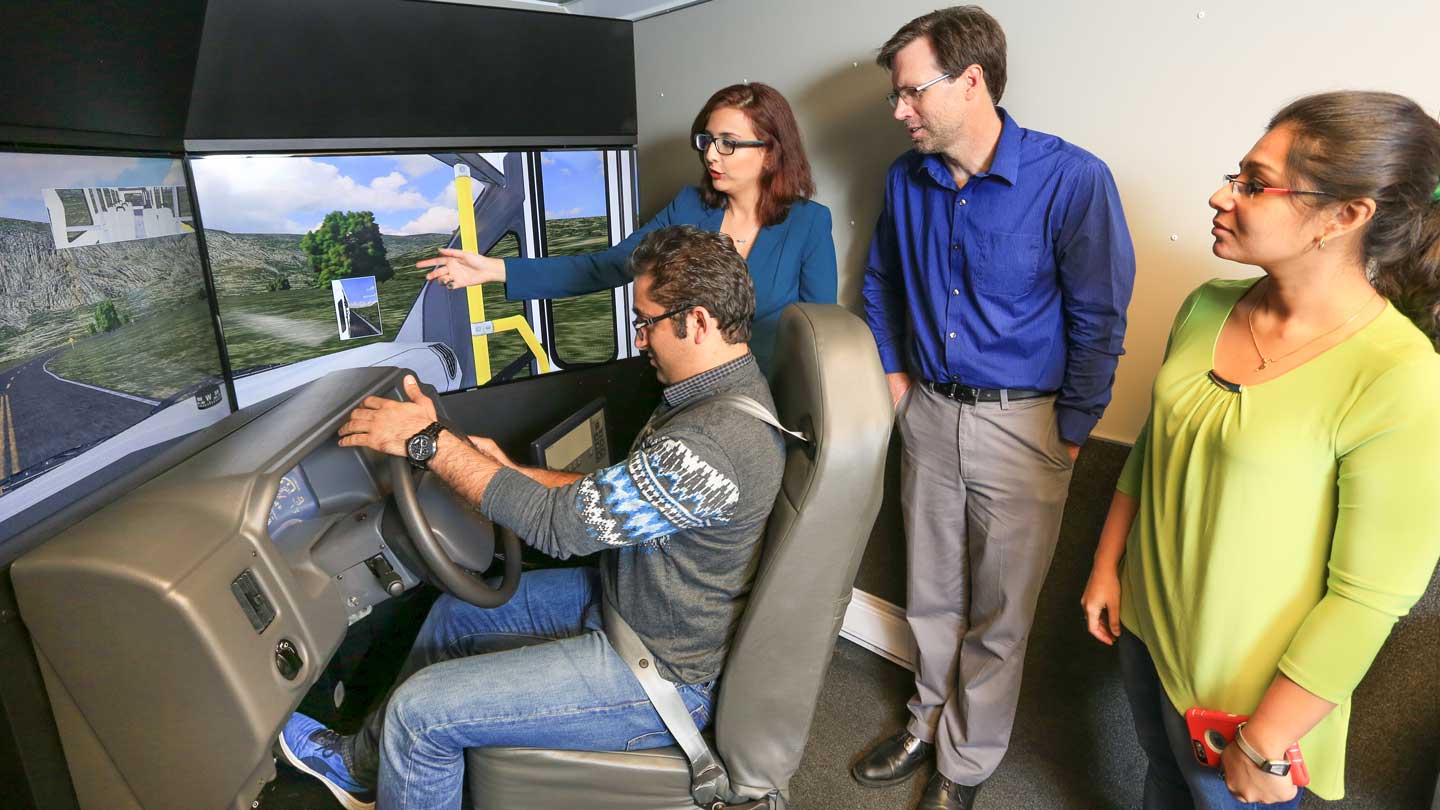
Mehrnaz Doustmohammadi, a Ph.D. candidate in transportation engineering at UAH, is the principle investigator on a grant that provides funding to train rural transit operators from across Alabama.
Mehrnaz Doustmohammadi may be a good driver in real life, but she has yet to master the close-quarters maneuvering course provided by RIDE, a million-dollar mobile driving simulator funded through a grant from the Alabama Department of Transportation (ALDOT) and housed and operated by The University of Alabama in Huntsville (UAH).
“It’s hard,” laughs the Ph.D. candidate in transportation engineering. Fortunately, she’s not the course’s target audience. Rather she is the principal investigator on a grant from ALDOT and Auburn University through the Rural Transit Assistance Program (RTAP). Funding provided by the grant enables rural transit operators from across the state to receive training in defensive driving, close-quarters maneuvering, negotiating intersections, and night/fog driving. “They love it,” says Doustmohammadi. “They are much better than me!”
Each of Alabama’s 30 rural public transportation agencies and the roughly 150 agencies that specialize in transporting elderly and disabled passengers are required to have at least one driver complete the course. To ensure equal access, the courses are offered at several locations across the state. “We’ve been to Montgomery, Birmingham, Mobile, Tuscaloosa, Troy, and Guntersville,” says Doustmohammadi, who earned her master’s degree in industrial and systems engineering from UAH in 2015. “On any given day, we can train about 20 operators using the simulator, which adds up to over 400 people since we began.”
Feedback from drivers who have completed the training has been positive, with many citing the course as a good refresher on how important it is to stay cautious and alert. Says one, “this program helps remind us the everyday we need to be watchful, because any day is the one in which a crash could change someone’s life.” Adds another, “these riders are not just passengers – they are members of our community and friends – so it is our job to get them there and back safely.”
Doustmohammadi is assisted on the project by Dr. Michael Anderson, professor of transportation engineering and associate dean for graduate education and research. In return, she is helping him with several other studies, including one that requires the pair to forecast the state of Alabama’s roadway infrastructure – and the cost to maintain it – in 2040. She is also working on her dissertation, which focuses on the affect each stage of Alzheimer’s disease has on a person’s driving capability.
Contact
256.824.RIDE (7433)
RIDE@uah.edu
